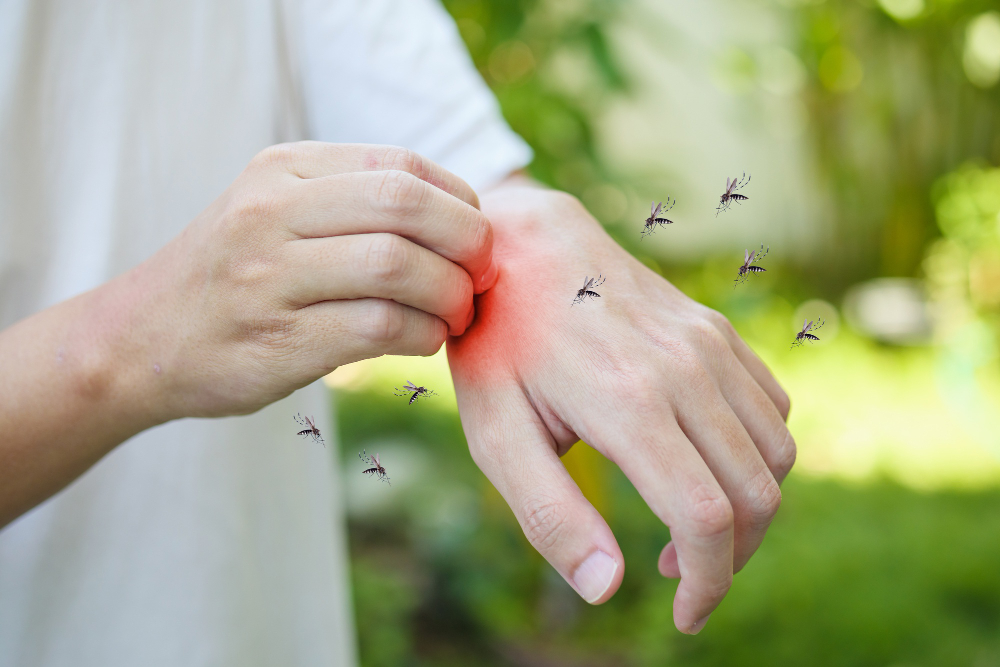Hidden burden of Chikungunya in North India in this season
Chikungunya, a mosquito-borne disease that causes debilitating joint pain, has emerged as a bigger threat than dengue for people living in north India than those in southern states that have had their share of outbreaks over the past decades.
The reason is simple: people in north India don’t have much immunity against this viral infection that rarely kills but causes severe pain that can last for months to years after recovery.
Spread by the Aedes egypti mosquito that also causes dengue, Chikungunya has hit people in the north harder over the next few years till the population develops immunity against the virus, say experts.
Signs and Symptoms
The following are the signs and symptoms associated with Chikungunya:
- Fever, nausea and fatigue: Abrupt onset of severe fever can be noticed, which can be as high as 104 deg
- Joint pain: You may have severe pain in the joints accompanied with
- Headache: You may experience a frequent or severe headache for many days.
- Rash: Skin rashes may appear all over the entire body.
- Eye problems: Chikungunya infection can cause conjunctivitis
Debilitating illness
People who are diagnosed with the disease may suffer debilitating pain in their bones and joints, and could take many months to recover fully. The viral attack causes inflammation of muscle tissue around the main joints such as wrists, knee and elbows but why the extent of pain and why it stays for so long is unclear, say experts.
“There are not enough studies but the pain and long time to heal is mostly attributed to immunological response of the body to the process of inflammation. Your immune system attacks muscle tissue which leads to excruciating pain and difficulty in moving and doing chores that involve the joints,” says Dr Shah Alam, Professor, Orthopaedic department, All India Institute of Medical Sciences, Delhi.
Medicines and vaccines
There is no treatment currently prescribed for Chikungunya — people are given symptomatic treatment. The efforts are on to develop a vaccine and test potential medicines to treat the disease.
Preventive measures
As there is no vaccine to prevent the spread of Chikungunya virus, it is advisable to follow certain prevention tips like:
- Stay away from the areas where there is stagnant water.
- Keep your surrounding areas clean and dry. Warm and moist areas are the primary mosquito vector breeding sites.
- Use of mosquito repellent creams and mosquito nets helps you to prevent mosquito bites.
- Wear clothing that covers your entire body.
- Avoid traveling to the places where there is an outbreak of the disease.
Following test are available at Helix Pathlabs for Chikungunya diagnosis
Chikungunya PCR
Chikungunya IgM
Meet Our MD, Dr. Charandeep Singh Sahni
We take pride in the fact that we are led and driven by the innovative and humanitarian approach of our honourable managing director, Dr Charandeep Singh Sahni. Carrying several years of experience in medical services under his belt, Dr Sahni has been actively involved in organizing and conducting national and state-level conferences at TMH. He specializes in lymph node pathology, GI pathology, head and neck pathology, and breast pathology.
Medical Academic Background and Career at a Glance
- MBBS from the prestigious Grant Medical College and Sir JJ Hospital, Mumbai with distinction in Biochemistry and Pharmacology in 2000.
- MD in pathology from Tata Memorial Hospital, Mumbai from 2003-06.
- Worked as Senior Resident in Department of Histopathology at PGIMER, Chandigarh.
Research and Papers Presented by Dr Sahni
Dr Sahni also demonstrated his professional achievements by presenting his research works at several eminent conferences. Some of his research work was published and referred by eminent medical journals.
- He presented a poster on “Aorto-Left Atrial Fistula” in APCON 2003 at Bhubaneswar.
- His paper on “Analysis of Renal Cell Carcinoma: A Study of 173 cases” in APCON 2005 at Pune was lauded by the healthcare community.
- In 2006, he demonstrated an important piece of research titled “Distribution, clinicopathological characteristics and immunophenotyping of Hodgkin’s Lymphoma: A study of 313 cases using WHO classification (2000)” at APCON 2006 in Bangalore.
Key Published Works:
Dr Sahni has also been involved with many articles published by leading science and medical journals.
- Bothra R, Pai PS, Chaturvedi P, Majeed TA, Singh C, Gujral S, Kane SV. Follicular dendritic cell tumour of tonsil – is it an underdiagnosed entity? Indian J Cancer 2005; 42 (4): 211-4.
- Charandeep S Sahni, Sangeeta B. Desai. Distribution and Clinicopathological characteristics of non- Hodgkin’s lymphoma in India: A study of 935 cases using the WHO classification of lymphoid neoplasms (2000). Leukaemia and Lymphoma 2007; 48 (1): 122-133.
- Charandeep Sahni, Sangeeta Desai. Primary testicular precursor B-lymphoblastic lymphoma: A rare entity. Leukaemia and Lymphoma 2007

